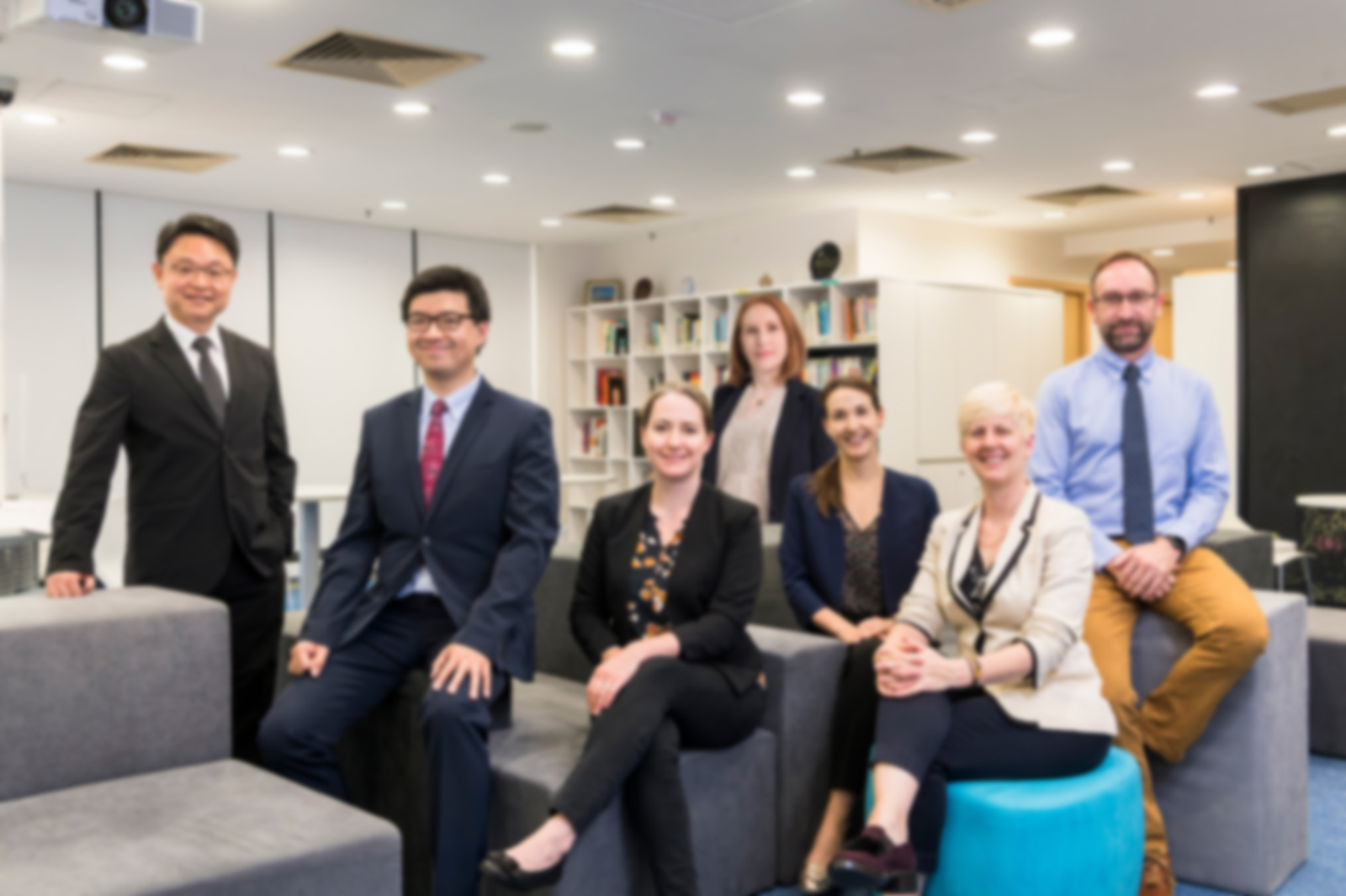
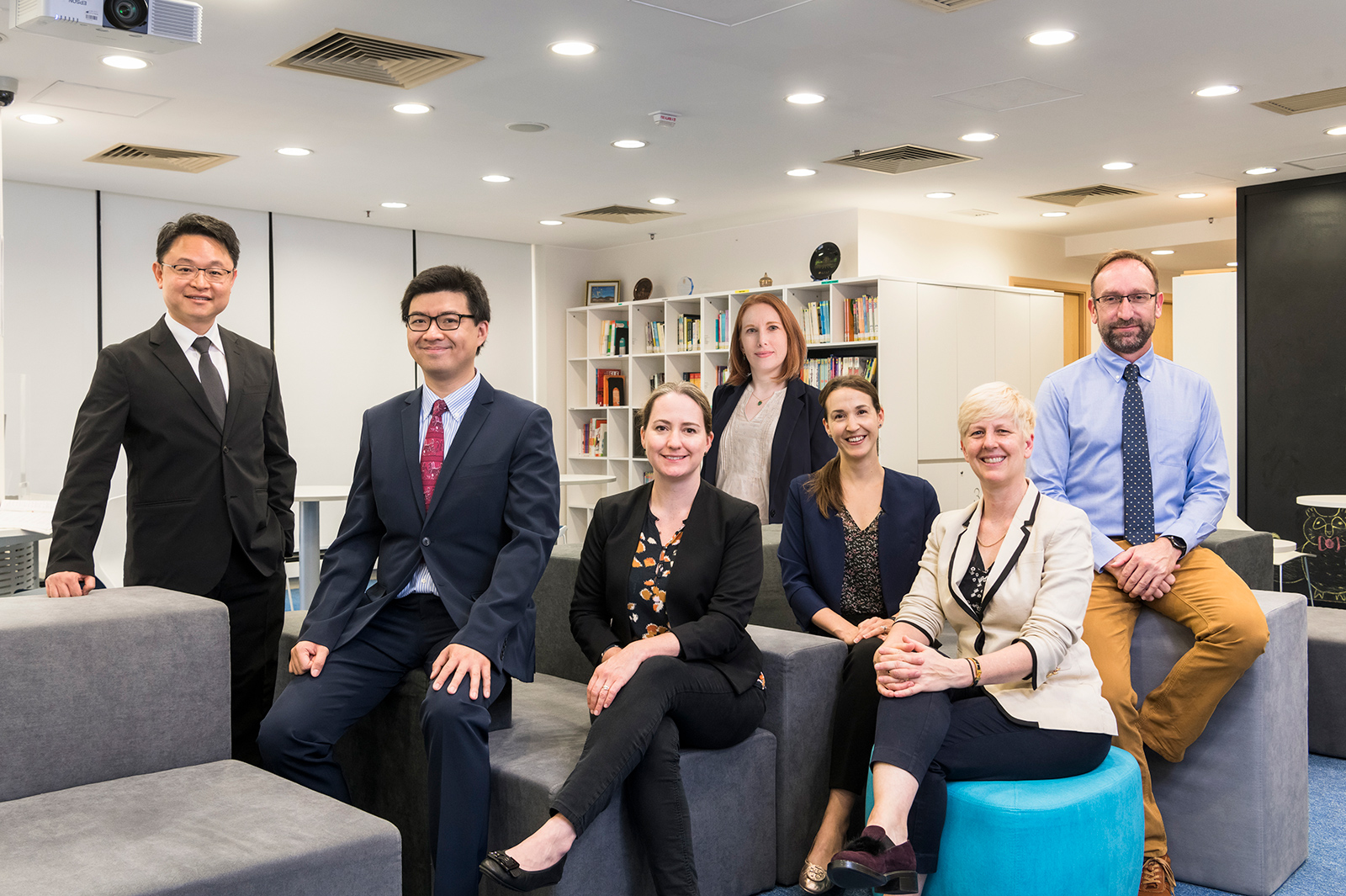
The Teaching Excellence Awards (TEA) for 2022/23 have been presented to seven faculty members at City University of Hong Kong (CityU) in recognition of innovative approaches to educating their students.
The winners are Professor Kenneth Lo Kam-wing of the Department of Chemistry, Dr Tsui Lik-hang, Assistant Professor in the Department of Chinese and History, and the Veterinary Clinical Skills Team led by Dr Rebecca Parkes, Assistant Professor in the Department of Veterinary Clinical Sciences (VCS).
Dr Parkes’ team comprises Professor Vanessa Barrs, Acting Dean of the Jockey Club College of Veterinary Medicine and Life Sciences (JCC); Dr Gareth Fitch, Clinical Associate Professor, and Dr Kate Flay, Assistant Professor, both in VCS; and Mrs Susanna Taylor, Scientific Officer, in JCC.
A good teacher is like a catalyst that assists in transforming students into self-motivated lifelong learners
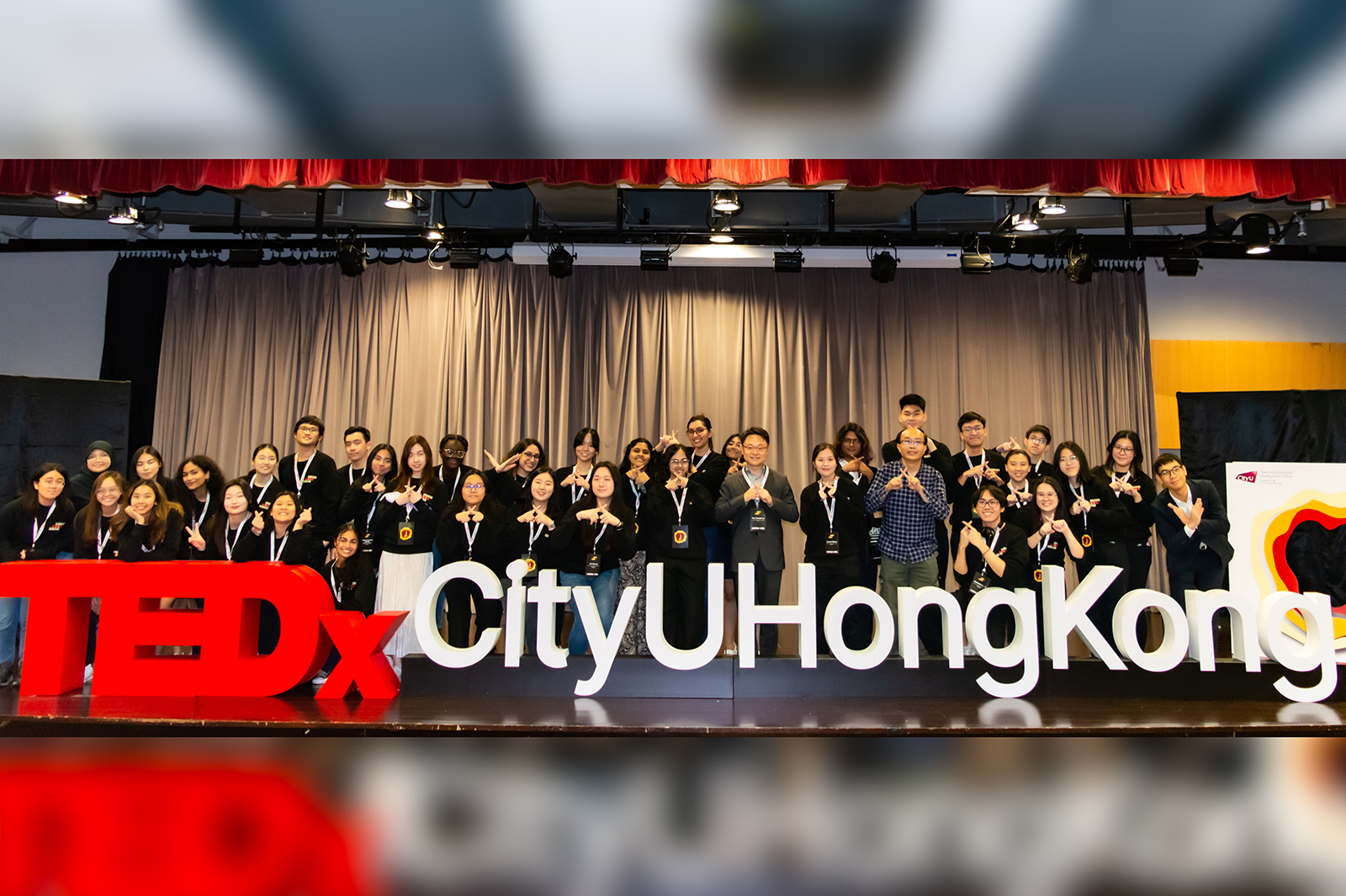
Professor Lo’s core values for teaching centre on adapting his classes to the students’ learning pace and individual needs, challenging high-achieving students while improving the performance of students who are still consolidating their knowledge.
He adopts an interactive, two-way teaching and learning process in class, deploying graphical and animated content and virtual laboratory video to maximise the overall learning experience.
In addition, Professor Lo successfully led the application for Royal Society of Chemistry accreditation for the BSc in Chemistry; has added streams like Cosmetic Chemistry and the Global Research Enrichment and Technopreneurship Programme; has designed the BSc/ MSc Double Degree Programme at CityU and the joint Bachelor’s Degree Programme with University of Manchester to better equip students for their postgraduate studies and future careers; and provided short- and long-term targets for students by engaging them in summer research programmes, final-year projects, directed studies and campus internship schemes.
“Effective teaching and learning can be substantially enhanced by providing students with a reputable identity, a flexible learning experience, added academic value, achievable goals and opportunities to develop and excel as, and eventually become, lifelong learners,” Professor Lo concluded.
A digital deep dive into where the past and present meet
Dr Tsui adopts digital tools and a data-driven approach to teaching and learning, enabling students to participate more fully as “researchers” when tackling academic questions.
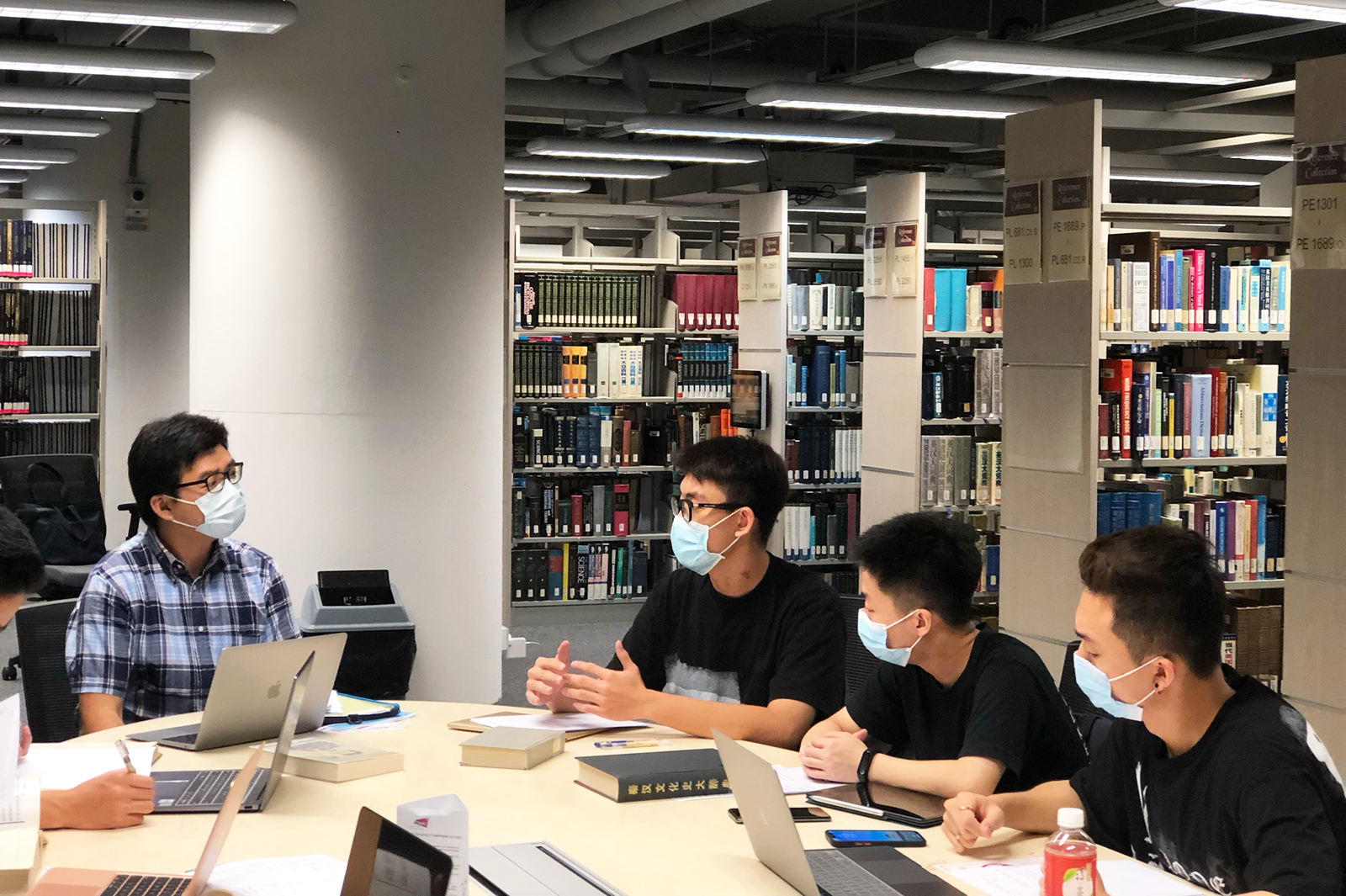
Understanding the importance of engaging students in class discussions, Dr Tsui combines an open-access digital library for pre-modern Chinese texts and online annotation tools that engage students more fully and helps recreate a lively online environment for a reading seminar. He integrates existing online datasets with handpicked innovative digital tools for mapping historical locations, drawing timelines, annotating historical texts and looking up digital biographies from Chinese history. These digital tools help to instil a “discovery” element and implement a student-centred approach to his classes.
“Using digital tools and amplifying the human touch will become increasingly important for teachers of our age,” Dr Tsui said.
Tech-to-vet: clinical skills for tomorrow’s vets
The Veterinary Clinical Skills Team led by Dr Parkes shares the vision of practice makes professionals. They are dedicated to using technology-enhanced and pedagogically integrated clinical skills and teaching methods to produce professional veterinary surgeons.
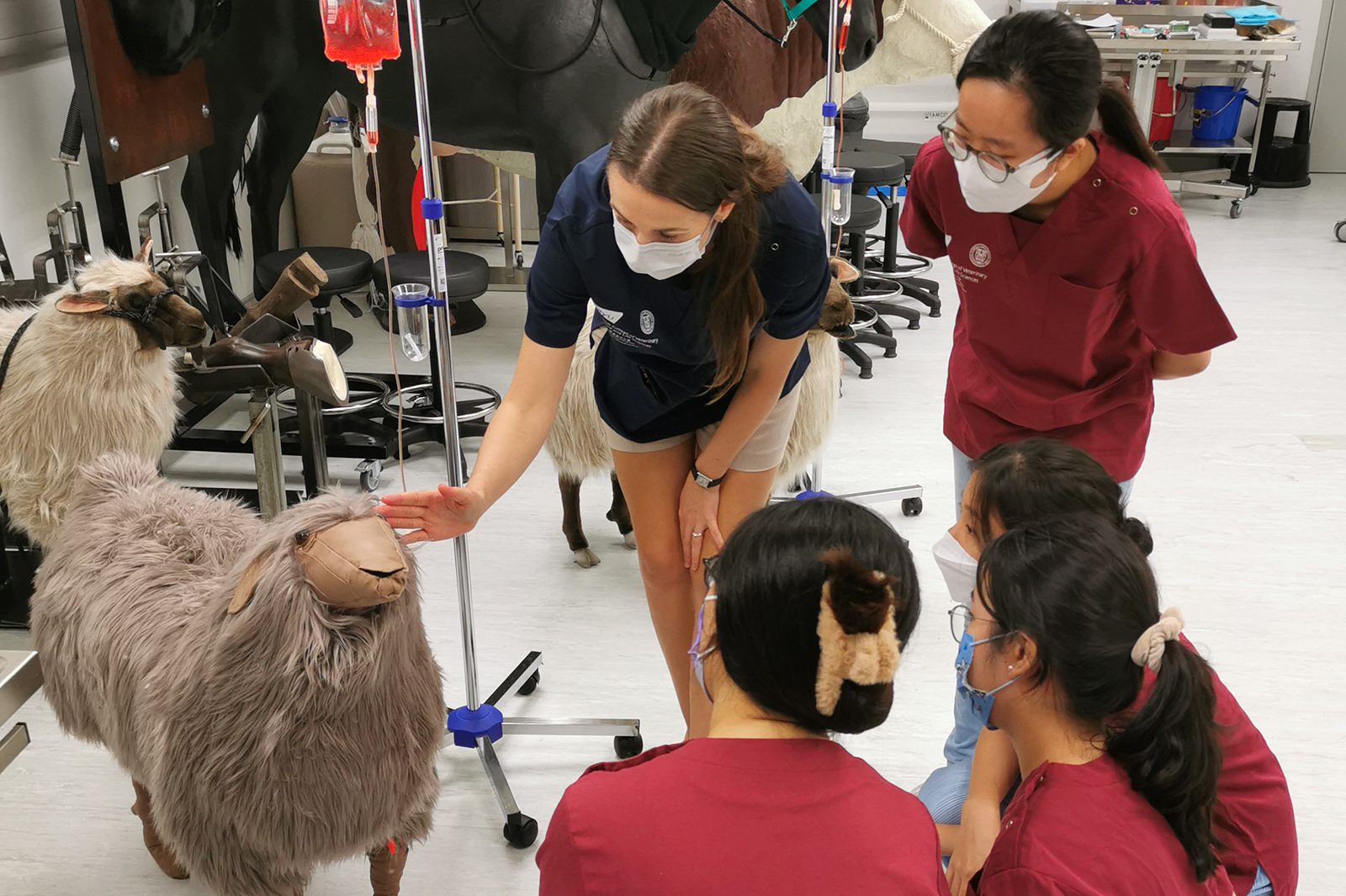
In addition to adopting student-centred learning methods, the team encourages professional practice by providing high-fidelity teaching materials that offer the most realistic learning experience, such as using a 3D printed mould for creating animal organs for various practices. Innovation is also crucial to developing students’ skills in animal species they lack access to.
“Students benefit from increased confidence and reduced anxiety if they first develop their skills in a simulated environment. This gives more opportunity for practice in a controlled environment,” said Dr Parkes. The team collaborates with the School of Creative Media at CityU and institutions worldwide to facilitate teaching.
Moreover, the global applications of the augmented reality model that the team has developed for assessing cats can be widespread because of the growing affordability of the relevant technologies. “We are increasing our use of technology that hasn’t been widely deployed in veterinary medicine. There is scope to assist other veterinary schools in Asia in implementing these techniques,” Dr Parkes added.
The TEA, introduced in 1993, honours outstanding teachers and promotes best teaching practices. Each awardee receives a cash prize of HK$15,000 for professional development, while a grant of HK$150,000 is given to each award recipient and winning team to undertake a teaching development project.
